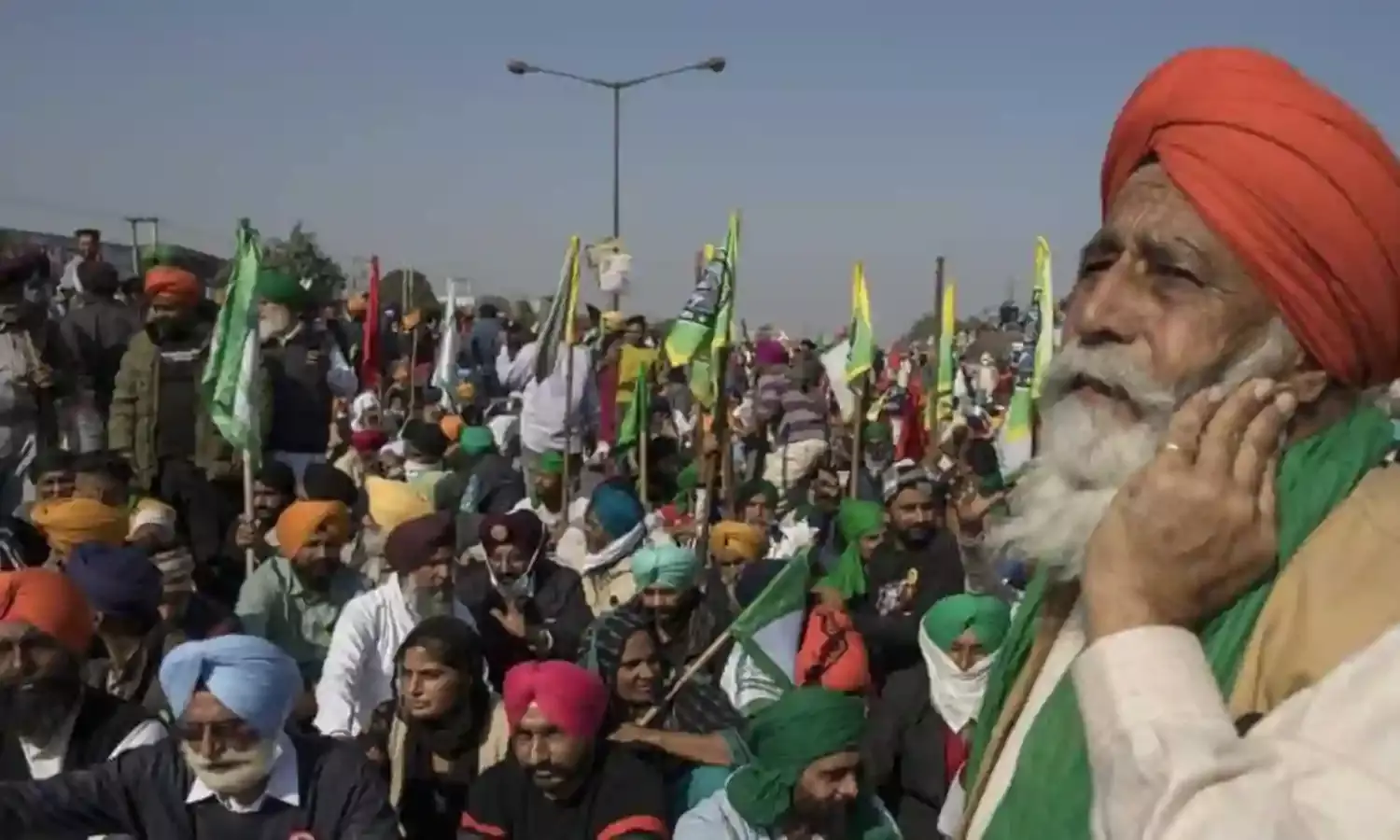Why the Farmers Were Left With No Choice But to Protest
Farmers protests gain momentum
Good that the farmers are fighting for their right to dignified living by facing the Delhi powers. The ruling establishment is trying to ensure that monopoly capitalists become global rich capitalists by robbing the farmers across the country.
The farm laws of the government can be justifiably characterised ‘ Farm Rob Laws’. The law of social smuggling has now got the stamp of the Indian Parliament.
When I characterised the Bania business as ‘Social Smuggling' in my book Post-Hindu India there were protests and that book was dragged to the Supreme Court and also many local courts in Telangana. Fortunately the Supreme Court of Indian dismissed their petition and said that the free speech of the writer cannot be taken away.
The farm laws that the centre enacted essentially legalise big business smuggling with parliamentary approval. The present farm laws basically shift the controls from the town level sahukars to the big business barons who can then rob farm produce without accountability.
The Indian sahukar system does not have any morals or empathy for the poor farm hands. The Indian monopoly capitalists would not follow even capitalist morality towards tillers of the land.
As of now the grain markets are under the control of local sahukars who exploit, cheat, hoodwink the farm producers, who are mostly Shudras/Dalits and Adivasi toiling masses. Majority Sahukars have no social and cultural relationship with Shudra/Da lit/Adivasi farmers in any mode. Their food and bed cultures are different.Yet the local governments and state governments would try to negotiate between the farmers and the middlemen as the electoral democratic structures force them at the local and regional level to do that much.
Now Delhi directly deals with markets and the monopoly capitalists control Delhi through election finances. And rob the farmers all over the country with the help of the new farm laws.
The farmers are treated as a source of market wealth and nothing else. Their well being is never of concern. These business men are ruthless monopoly sahukars. They have entered into every business in a big way. Their glittering malls in the cities have finished the small survival economies of galli shop owners.
In the name of ‘farm to home’ business the monopoly sahukars are changing the crop patterns and giving small advances to farmers to invest in crops that suit their national and international business. The interest rate calculations they do have the same old multiple interest rates. By the time the crop comes to the farmer's hand nothing remains. The entire crop moves from ‘farm to homes’ of the urban middle class.
The reservations have created a small middle class of Shudra/OBC/Dalit/Adivasis who now live in urban and semi urban centres and buy service commodities in the high end malls. But the vast masses cannot buy anything in these big malls. Once the grain markets also go into the hands of this high business chain the farmers will be robbed without any checks and balances from the local political forces.
Already the successive Governments have transferred agrarian lands that belong to small farmers to the big business houses in the farm of Special Economic Zones. This process started during the UPA regime. The Manmohan Singh Government also preferred transfer of agrarian production and control from small farmers to big business houses as part of their globalization and liberalization agenda.
During the UPA period the finished product market has spread to deeper rural areas and the traditional commodity use has been replaced by globalised market goods almost in every village. That process has destroyed the rural artisanal economy. It was through that process China goods entered every village.
The displaced artisan masses were slowly settling down in a repositioned agrarian economy. The Employment Guarantee Scheme that the UPA brought in saved many such displaced artisans turning them into daily wage earners in the village setting. Slightly improved agrarian produce, in spite of middlemen robbery continued to sustain the rural masses by allowing them food on their plates. The new farm laws will attack the small, middle and rich farmers because the big business buyers will change the crop system to suit their national and global markets.
The ruling party is interested in their massive election funds in the form of bonds from these companies but not the sustainability of masses in the village setting.Election management through big business capital entered into a new phase in Indian democracy with this model. Business houses are handling elections directly in this era. Only the Punjab and Haryana farmers seem to have realised the gravity of the situation. Most of the farmers of the Hindi belt constitute Shudra/OBCs while the agrarian labour is largely of Dalits.
There are more cow protection lobbyists in the current dispensation than farmer protection lobbyists. The business interests are dominant in those structures with top leaders having fingers deep in the business pie. The farmers movement has to gather nationwide momentum otherwise the powers in Delhi will not budge.
Kancha Ilaiah Shepherd is a political Theorist. His new book The Shudras--Vision for New Path co-edited with Karthik Raja Karuppusamy, is soon to be published by Penguin.
Cover Photo Bloomberg





